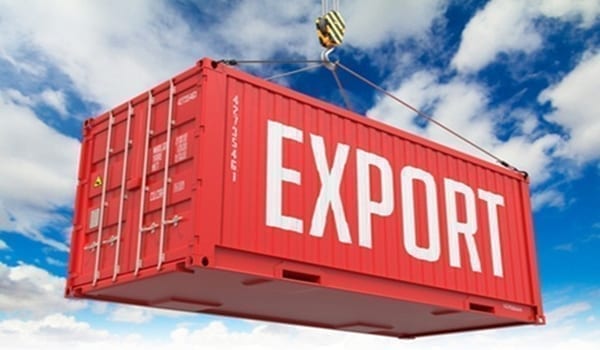Import substitution and export promotion in egypt , Exchange strategy change in Egypt is a mind boggling and dynamic wonder that keeps on being dependent upon homegrown governmental issues and outside interests and weights that are not generally exchange arranged (El-Mikawy and Ghoneim 2003). During the 1990s and into the 2000s, Egypt’s exchange strategy turned out to be more open on one-sided, provincial, and multilateral levels. An advance toward enhancement of Egypt’s principle exchanging accomplices was seen during the 1990s, during which Preferential Trade Agreements (PTAs) were endorsed with African, Arab, and European nations. Homegrown and unfamiliar motivating forces and weights to take part in such PTAs were driven by monetary interests and political will. In corresponding with exchange progression the 1990s, a cycle of exchange change happened.
Import substitution and export promotion in egypt
Import replacement
is the possibility that impeding imports of made products can help an economy by expanding the interest for locally delivered merchandise. The rationale is straightforward: Why import unfamiliar made vehicles or garments or synthetics when one could deliver those merchandise at home and utilize laborers in doing as such?

This thought returns hundreds of years in financial idea however is usually connected with the Argentine market analyst Raúl Prebisch, who broadcasted his thoughts in Latin America and around the globe during the 1950s. Many agricultural nations received import replacement exchange techniques after World War II, when monetary improvement was compared with industrialization and capital speculation. By the 1980s, in any case, the thought had become undesirable with the ascent of the “Washington Consensus” that upheld more liberated exchange.
However today, import replacement might be returning vogue. A few African nations have as of late showed they might be grasping it once again.[2] Other nations, for example, China, India, and even the United States try to advance homegrown assembling and reject imports from the market. For instance, in the United States, the Trump organization has been making moves to “reshore” creation of autos, semiconductors, and other made merchandise to support American yield and make producing occupations.
In this unique situation, it is to some degree astounding and informational to discover that even the first defenders of import replacement were somewhat qualified in their backing of this approach and were among the first to perceive its likely blemishes and threats.
The Trade and Industry Ministry extended the part of the Egyptian Export Promotion Center

transforming it into its top expert on fare strategy, Al Borsa detailed. The middle will start to lead the pack on executing the service’s methodology for boosting sends out, as per Minister .
Read
Strategy for export: An overview
Egypt experiences a primary import/export imbalance issue and accordingly it can’t create enough unfamiliar cash income to cover the nation’s imports and its unfamiliar obligation responsibilities.
This has prompted a fast decrease in the unfamiliar cash saves, which was additionally joined by a precarious downgrading of the Egyptian pound, which has lost 17% of its incentive against the U.S. dollar since January 2011.
Tending to the underlying drivers of this primary import/export imbalance is Egypt’s most significant monetary test. As indicated by information from the business service, the significant fare item is oil and oil based goods (28.7%), non-oil sends out expanded from 44 billion Egyptian pounds to 92 billion Egyptian pounds in 2009.
Therefore, at that point Industry Minister Rashid Mohamed Rashid proposed an arrangement to twofold fares to 200 billion Egyptian pounds inside 3 years; nonetheless, the arrangement was reconsidered because of the condition of financial conditions following the January unrest, with the end goal that the objectives for 2012 and 2013 were altered to 130 billion Egyptian pounds and 145 billion Egyptian pounds, separately.

Fares toward the finish of 2013 arrived at 147.2 billion Egyptian pounds—up by 11% from 2012, which saw trades with an estimation of 132.7 billion Egyptian pounds.
Upon the consummation of the 2013 technique, the Ministry built up another arrangement for 2014, which focuses on the estimation of fares to be 175 billion Egyptian pounds or $25 billion (in light of a conversion scale of $1 to LE7).
Thus, the Ministry of industry, unfamiliar exchange and speculation is dispatching another technique to twofold fares of non-oil Egyptian items throughout the following four years.
The Ministry arranged an aspiring technique to twofold fares that isn’t based exclusively the worth it accomplishes, yet rather on the nature of items traded and their capacity to arrive at target markets.
The methodology is hoping to accomplish different standards, including improving worth added creation, work, natural safeguarding and energy protection, applying endeavors to open up new business sectors while depending on neighborhood makers and providers and building their ability.
The Ministry likewise is creating enactment to manage exchange and industry, encourage and build up the standards utilized by the oversight body and improve determinations and quality control for nearby items, including those for unfamiliar business sectors.
Likewise, in excess of 80 Egyptian ICT organizations have enlisted to take an interest in the Export IT program run by the IT Industry Development Agency (ITIDA).
Through the program, ITIDA plans to help Egyptian organizations in expanding their fares and diminishing the impacts of the financial log jam.
The program was dispatched in 2010, when 68 organizations applied and 57 were acknowledged, getting sponsorships adding up to more than 21 million Egyptian pounds. In 2011, the quantity of candidate organizations was 88, of which 76 profited by the program, accepting a sum of 29 million Egyptian pounds in endowments. In 2012, the quantity of candidate organizations was 81, of which 73 profited by the program, with an absolute sponsorship of 29.5 million Egyptian pounds.






